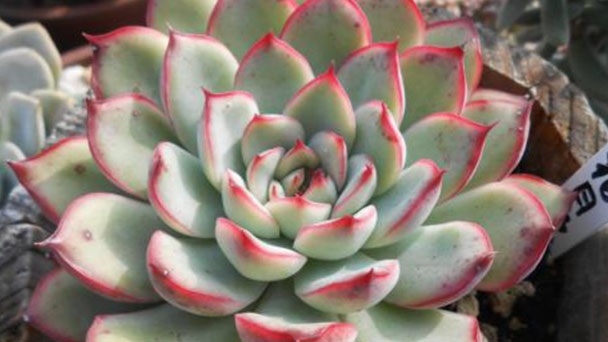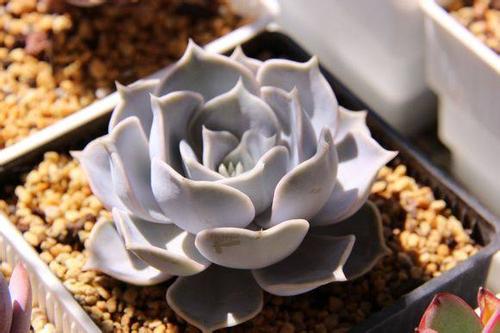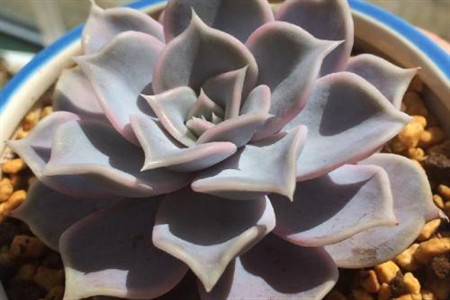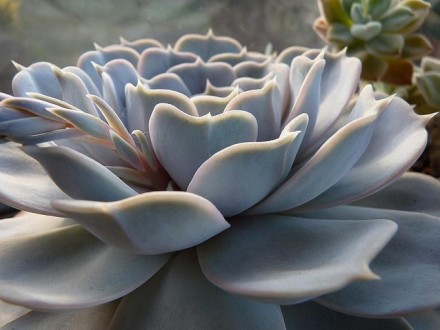How to grow Echeveria lilacina
Written by Maggie
Dec 03 2020

In the process of Echeveria Lilacina cultivation, the loose and breathable sandy soil should be used for pot cultivation.On the basin it is appropriate to add some perlite mixing and stirring. At ordinary times, give full sunshine treatment, in addition to the summer shade.Keep the substrate moist during spring and summer and water thoroughly each time to ensure proper root growth.

Breeding methods of Echeveria Lilacina
1. Loose soil
Echeveria Lilacina is a common fleshy ornamental plant, mainly composed of loose, breathable, well-drained sandy soil.An appropriate amount of peat soil can be selected as the main matrix, in order to increase the permeability of the soil. some granular pumice and perlite can be appropriately added.After pouring in water, stir well, which can effectively promote root growth.
2. Plenty of light
Echeveria Lilacina likes to grow in long sunshine conditions.In the middle of summer, when the temperature is higher than 32℃, proper shading treatment should be carried out. In other seasons, the plants can receive full sunshine treatment, which is conducive to leaf development.After entering the autumn, the light time of the plants should be gradually increased. In winter, the plants should be kept in the greenhouse for conservation.
3. Water management
Water treatment is one of the breeding methods and precautions for Echeveria Lilacina.Echeveria Lilacina is a succulent root plant with strong drought tolerance.But in spring and summer in the growth period, at this point often to keep the basin soil moist not water.Water thoroughly after each watering and allow the soil to dry before watering.

4. Fertilizer management
In order to ensure that echeveria lilacina can flourish, proper nutrients should also be supplied during growth.Base fertilizer can be applied on the plant when the pot, mainly with thin organic fertilizer.Apply urea solution once a month during the growth period. loosen the soil after fertilization, and stop fertilization in high temperature and winter.
Matters needing attention when breeding Echeveria Lilacina
Echeveria Lilacina should follow the principle of seeing dry and wet when watering, and do not pour from the center of the leaves when watering, so as not to cause the phenomenon of rot.Watering should be done in the morning and evening in summer and around noon in winter to avoid damaging the adaptability of the roots.

Latest Updated
- Benefits of Bugleweed - 7 Science-backed Health Benefits
- Bugleweed Dangers & Side Effects - Is It Poisonous?
- How to Plant Evergreen Trees - What You Should Know
- When to Plant Evergreens - Grow Guide for Evergreen Trees
- 12 Wonderful Evergreen Shrubs for Your Garden
- 12 Popular Evergreen Plants with Pictures for Beginners
- When And How To Prune A Lilac Bush Like a Pro
- How to Grow & Care for Lilac Vine (Hardenbergia Violacea)
- Japanese Lilac Tree (Syringa Reticulata) Care & Propagation Guide
- Shumard Oak Pros and Cons - What to Know
Popular Articles
- Winter maintenance of Antirrhinum Majus
- How to Grow Terminalia Mantaly Tree
- How to Grow and Care for Crossostephium Chinense
- How to grow Antirrhinum Majus in spring
- Peristeria Elata (Dove Orchid) Profile: Info & Care Guide
- Underwatered Snake Plant (Sansevieria Trifasciata) - Signs And How To Fix
- How to Care for Brazilian Jasmine Plant (Mandevilla Sanderi)
- How to Grow & Care for Graptopetalum Purple Delight in Summer
- Rosa Chinensis (China Rose): Plant Growing & Care Tips
- How to Care for Baby Sun Rose (Aptenia Cordifolia)